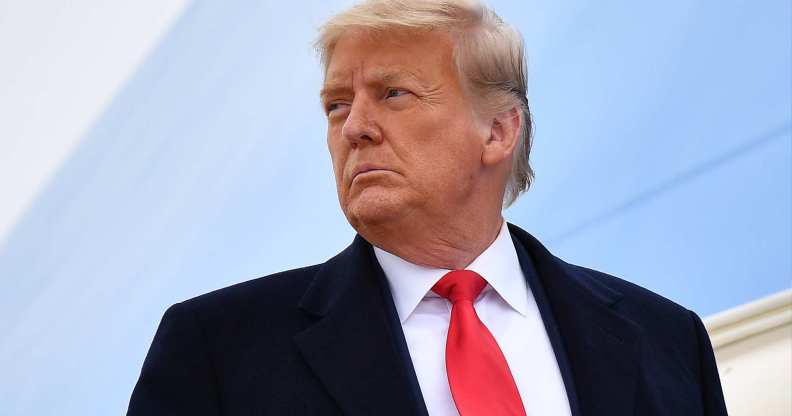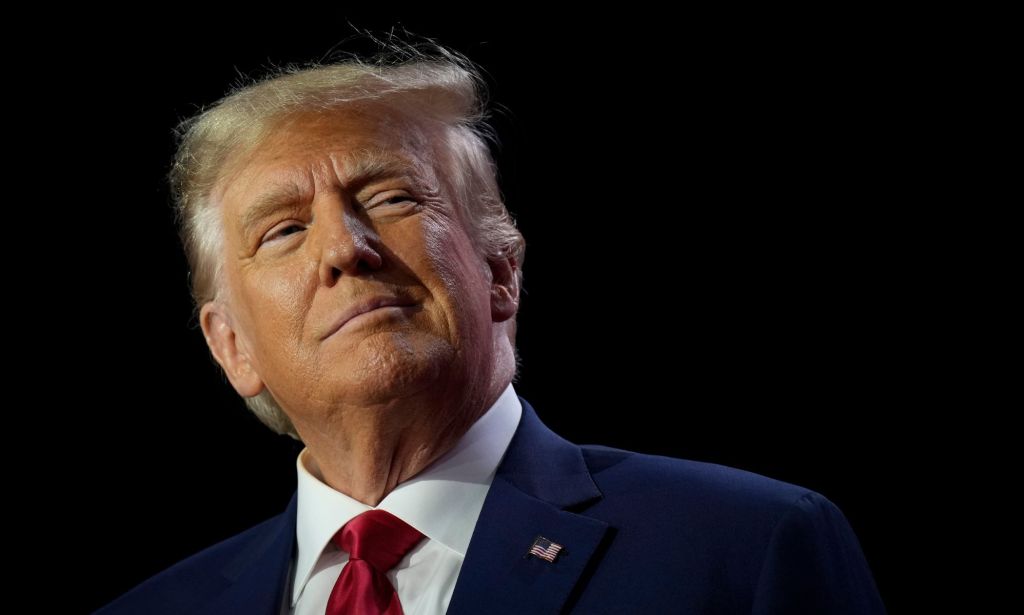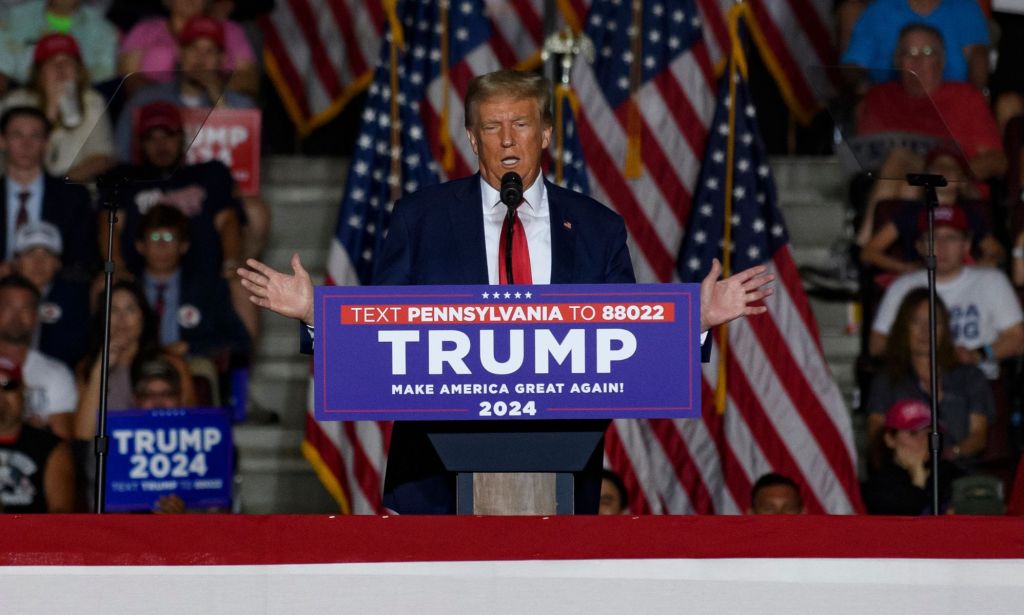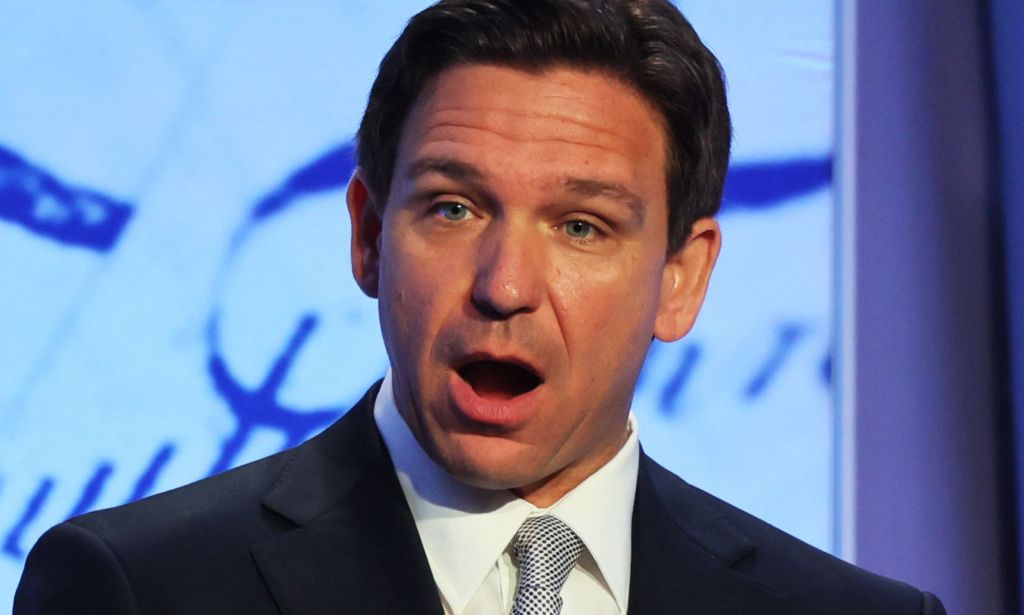Why is Donald Trump still so popular despite facing criminal charges?

Donald Trump’s popularity endures, even in the face of indictments. (Getty)
To say it’s been a difficult few months for Donald Trump and his staff would be an understatement.
The former US president has now been indicted three times. The latest charges could be the most damning yet – he and his allies stand accused of spreading false allegations of election fraud after he lost the 2020 presidential race.
The federal indictment, which runs to 45 pages, doesn’t hold back.
“Despite having lost, the defendant was determined to remain in power,” the document reads.
“For more than two months following election day on November 3, 2020, the defendant spread lies that there had been outcome-determinative fraud in the election and that he actually won. These claims were false and the defendant knew they were false,” it goes on to say.
For any other candidate, the charges would be serious enough to end a political career in an instant – but time and time again, Trump has proven that he is not like any other candidate.
He has faced scandal after scandal and keeps coming back, bolstered by an increasingly militant cabal of supporters who believe whatever he tells them.

Trump’s ability to command attention, even in the face of criminal charges, was shown again by a New York Times/Siena poll published on 31 July. Remarkably, the polling found that the former president has a 37 per cent point lead over his nearest Republican rival, Florida governor Ron DeSantis.
In short, Trump remains a surprisingly well-regarded candidate among many Americans – which begs the question: how is it that he remains so popular?
What’s behind Donald Trump’s enduring popularity?
Professor Phillip Ayoub, a politics lecturer at University College London, says Trump maintains massive popularity because each scandal supports the story he’s telling his supporters.
“I think the reason that these indictments are not chipping away fully at his popularity is that they also feed into the narrative that he has constructed of these ‘witch-hunts’ against him,” Ayoub tells PinkNews.
The narrative put forward by the Trump campaign – and frequently regurgitated by right-wing media in the US – is that president Joe Biden wants to “bring him down” using what the former president says are false charges.
Trump’s followers buy that narrative at least in part because of how sharply divided the media in the United States is.
“There’s a very big issue here with a weaponised media environment,” Ayoub says. Some media companies have tried to deflect from some of the charges by pointing at Hunter Biden, the president’s son, who is facing his own – different – legal woes.

“They’re being told there is a corrupt application of the justice system. You might argue the charges [against Hunter Biden] pale in comparison to Trump’s, but that story has gotten a lot of airtime on right-wing media outlets.”
Ron DeSantis’ lack of popularity is bolstering Trump’s presidential campaign
Trump’s popularity isn’t just about the media either – it’s also down to the dearth of strong Republican challengers.
When DeSantis announced he was seeking the Republican nomination, some wondered whether he might be able to oust Trump and claim some of his support.
But, so far, that has failed to materialise. While DeSantis appears able to command attention and support in his home state, that’s not translating across the country.
There are a few reasons that the hard-line right-wing governor has failed to take Trump’s place – for one, he’s “not very charismatic [and] not a very eloquent speaker”, claims Ayoub.
“Even Trump is not an eloquent speaker but he seems to be able to mobilise a crowd in a way that DeSantis can’t,” he says.

But Ayoub also wonders whether his intense focus on gender identity and sexual orientation is resonating across the country as much as he might have expected.
“Maybe that’s working better in Florida than it would in some other swing states like Arizona or Wisconsin,” the professor suggests.
It’s impossible to predict what will happen in the coming months of campaigning, especially if Trump will win the nomination, but, if he does, Ayoub thinks he has a chance at winning back the White House for the Republican Party.
One thing is, however, for sure: if he does end up moving back into the Oval Office, it would be detrimental for LGBTQ+ Americans.
Trump’s narrative all along has been that America – its values and its way of life – is under threat. He is likely to push the idea that LGBTQ+ people and other minorities are causing the country to go in the wrong direction.
“It’s a desire to return to an imagined past of American greatness,” Ayoub says. “It wasn’t a good era for LGBTQI people under Trump and it also wasn’t a good era under other Republican administrations in the past.
“We saw the Obama administration being the first to make some impressive gains on LGBTQ rights. Now, with the Biden administration, [although] there are a lot of anti-LGBTQ bills going through, at a federal level we do seem to have some progress.
“That would be the big change if Trump – or DeSantis – was to come to the White House,” Ayoub warns.
How did this story make you feel?

